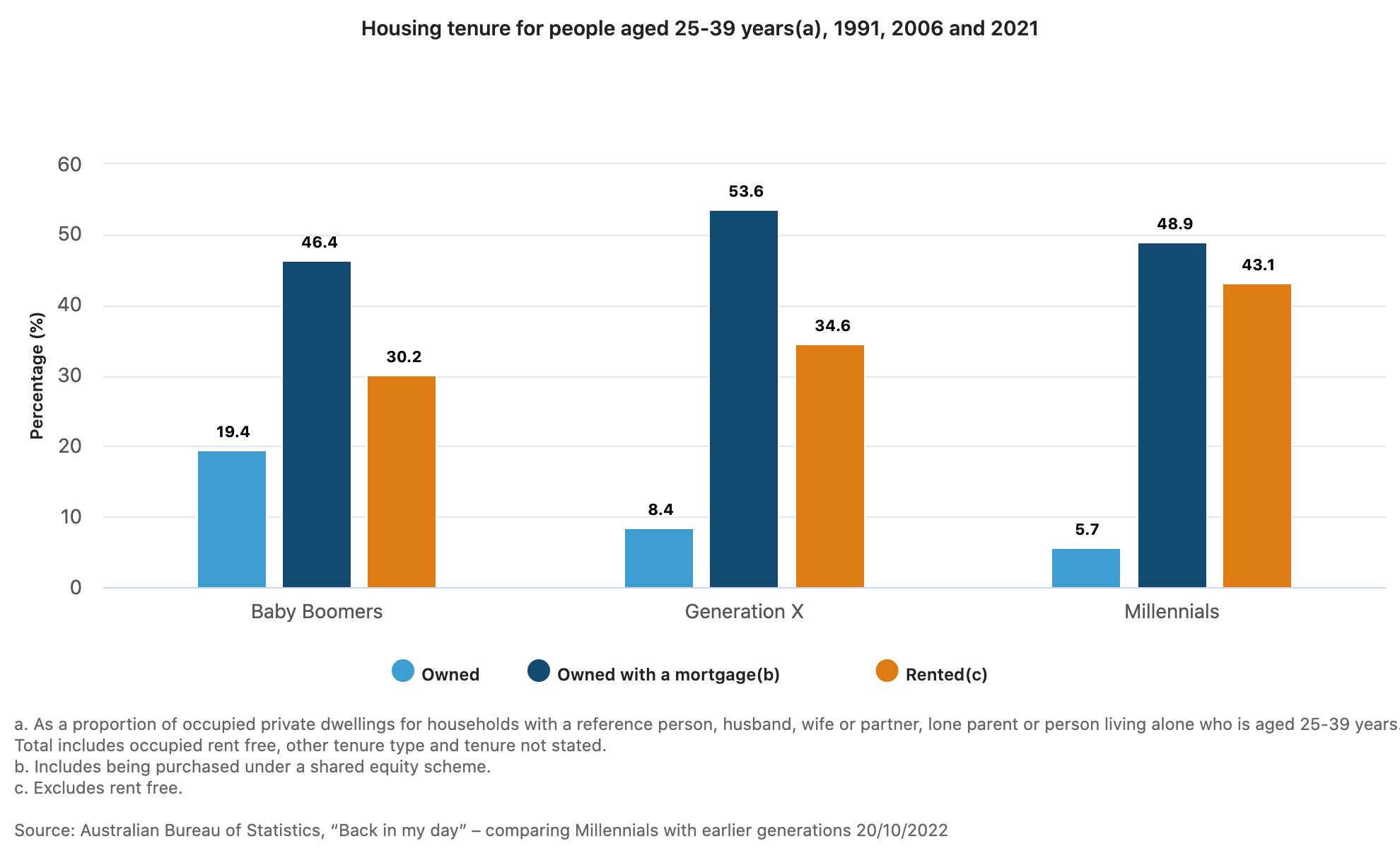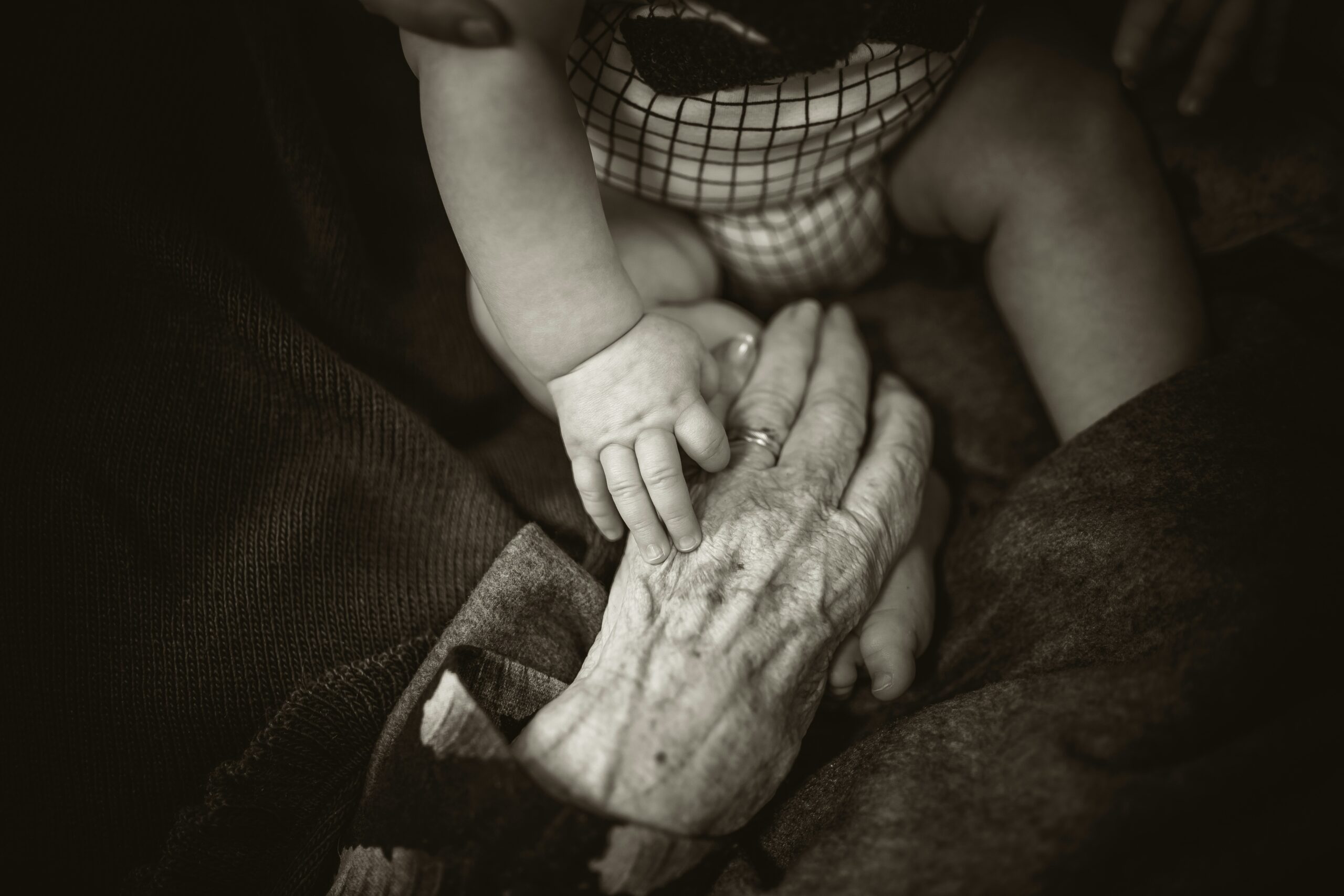How different generations view legacy
Legacy can mean a lot of different things to different people. For some it denotes the value of what you worked for in your life and leave to the people left behind when you pass. For others it’s about the impact you had, both positive and negative, on people and the environment.
Whatever it means to you, legacy is set to play a major role in the next federal election, with Gen Z and Millennial demographics (50%) outnumbering Baby Boomers (33%) for the first time. It followers 2021 Census statistics that put Millennials as the largest generational group in Australia – overtaking Baby Boomers.
The most common living arrangement for Millennials in 2021 was living in a couple household with no children (35.7%) which was almost twice the rate of Generation X in 2006 (18.1%) , and more than twice the rate of Baby Boomers in 1991 (14.6%).
Another key statistic, and hot voting topic in 2025 is home ownership. In the 2021 Census the likelihood of owning a home when aged 25-39 years decreased for each successive generation. Over half (54.6%) of Millennials in 2021 were homeowners (owned outright or with a mortgage), compared with 62.1% of Generation X in 2006 and almost two-thirds (65.8%) of Baby Boomers in 1991.

As stated by the ABS, “the characteristics of generations are shaped by the social, cultural, economic and political situation of the times which affect the way they live and work”. So it makes sense that when considering legacy, each generation brings distinct motivations and expression shaped by their historical, cultural, and economic contexts.
Baby Boomers (Born 1946–1964)
Focus on Institutional Legacy: Boomers often view legacy through the lens of institutional contributions, such as building organisations, establishing family traditions, and supporting charitable causes. Their legacy is frequently tied to the stability and growth they experienced during their formative years.?
Generation X (Born 1965–1980)
Pragmatic Legacy Building: Gen Xers often prioritise resilience and adaptability, focusing on providing stability for their families amid economic uncertainties. Their legacy is frequently centred on personal achievements and ensuring the well-being of their immediate circles.?
Millennials (Born 1981–1996)
Purpose-Driven Impact: Millennials tend to define legacy through social impact, emphasising contributions to causes like climate change, social justice, and equality. They often seek to align their careers and personal lives with their values, aiming for a legacy that reflects meaningful change.?
Generation Z (Born 1997–2012)
Redefining Success and Legacy: Gen Z is shifting its focus from a work-centric life to prioritising personal well-being and living, a trend driven by witnessing economic challenges and broken promises in corporate structures. They often view legacy as creating a balanced and authentic life rather than traditional markers of success. ?
Despite these strong differences in attitudes to legacy, there are also some cross-generational themes – most importantly that of intergenerational equity. This growing awareness of the responsibilities current generations hold toward future ones, particularly in addressing challenges like climate change and social inequality, encourages certain people towards actions that ensure fairness and sustainability for those yet to come. ?
Understanding these generational perspectives on legacy can inform how individuals and organisations approach long-term planning, philanthropy, and societal contributions, ensuring that actions taken today have positive ramifications for the generations to come. ?




